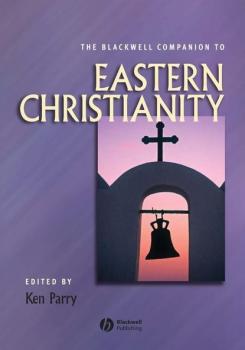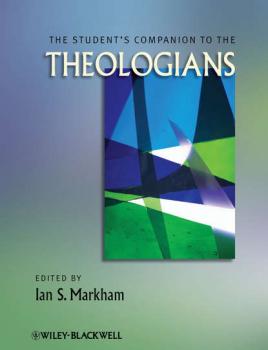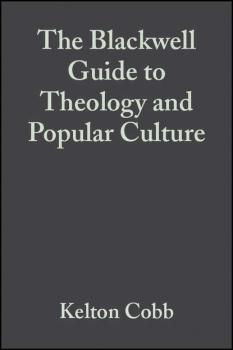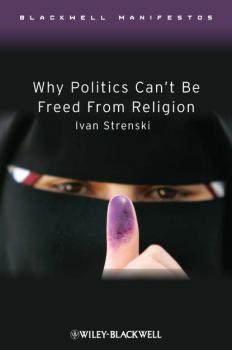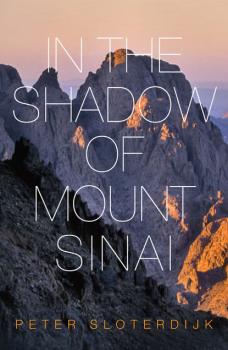Зарубежная эзотерическая и религиозная литература
Различные книги в жанре Зарубежная эзотерическая и религиозная литератураThe Blackwell Companion to Eastern Christianity
Now available in paperback, this Companion offers an unparalleled survey of the history, theology, doctrine, worship, art, culture and politics that make up the churches of Eastern Christianity. Covers both Byzantine traditions (such as the Greek, Russian and Georgian churches) and Oriental traditions (such as the Armenian, Coptic and Syrian churches) Brings together an international team of experts to offer the first book of its kind on the subject of Eastern Christianity Contributes to our understanding of recent political events in the Middle East and Eastern Europe by providing much needed background information May be used alongside The Blackwell Dictionary of Eastern Christianity (1999) for a complete student resource
The Blackwell Companion to the Study of Religion
This prestigious Companion offers the most comprehensive survey to date of the study of religion. Featuring a team of international contributors, and edited by one of the most widely respected scholars in the field, The Blackwell Companion to the Study of Religion provides an interdisciplinary and authoritative guide to the subject. Examines the main approaches to the study of religion: anthropology, the comparative method, economics, literature, philosophy, psychology, sociology, and theology. Also covers a diverse range of topical issues, such as the body, fundamentalism, magic, and new religious movements Consists of 24 essays written by an outstanding team of international scholars Reviews, within each chapter, an outline of a particular subfield and traces its development up to the present day Debates how the discipline may look in the future Represents all the major issues, methods and positions in the field
The Intellectual Origins of the European Reformation
The sixteenth-century Reformation remains a fascinating and exciting area of study. The revised edition of this distinguished volume explores the intellectual origins of the Reformation and examines the importance of ideas in the shaping of history. Provides an updated and expanded version of the original, highly-acclaimed edition. Explores the complex intellectual roots of the Reformation, offering a sustained engagement with the ideas of humanism and scholasticism. Demonstrates how the intellectual origins of the Reformation were heterogeneous, and examines the implications of this for our understanding of the Reformation as a whole. Offers a defence of the entire enterprise of intellectual history, and a reaffirmation of the importance of ideas to the development of history. Written by Alister E. McGrath, one of today’s best-known Christian writers.
The Student's Companion to the Theologians
This companion brings together a team of contemporary theologians and writers to provide substantial introductions to the key people who shaped the Christian story and tradition. A substantial reference work, bringing together over 75 entries on the most important and influential theologians in the history of Christianity Structured accessibly around five periods: early centuries, middle ages, reformation period, the Enlightenment, and the twentieth-century to the present A to Z entries range from substantial essays to shorter overviews, each of which locates the theologian in their immediate context, summarizes the themes of their work, and explains their significance Covers a broad span of theologians, from Augustine to Thomas Aquinas, through to C. S. Lewis, James Cone, and Rosemary Radford Reuther Provides profiles of key Catholic, protestant, evangelical, and progressive theologians Includes a useful timeline to orientate the reader, reading lists, and a glossary of key terms
The Blackwell Guide to Theology and Popular Culture
The Blackwell Guide to Theology of Popular Culture outlines various general theories of popular culture, identifies theologians and theological concepts that are conducive to analyzing popular culture, and explores religious themes that are asserting themselves through popular movies, novels, music, television shows and advertising. A timely examination and contribution to the rapidly expanding field of theology and popular culture Locates the theological analysis of culture alongside political, sociological, economic, aesthetic and psychological analyses Surveys the work of religious and theological scholars who have turned their attention to popular culture Considers classic Christian thinkers who have wrestled with culture, such as St. Paul, Tertullian, Augustine, Schleiermacher, Tillich, and Ricoeur Proposes a method for analysing culture to discern its religious content Identifies religious themes in popular culture Uses illustrations, ranging from the fiction of Nick Hornby to Six Feet Under An appendix provides lists of films, novels, television series, consumer products, architectural works, cultural events, and corporate icons that lend themselves to theological analysis.
Why Politics Can't Be Freed From Religion
Why Politics Can't be Freed From Religion is an original, erudite, and timely new book from Ivan Strenski. Itinterrogates the central ideas and contexts behind religion, politics, and power, proposing an alternative way in which we should think about these issues in the twenty-first century. A timely and highly original contribution to debates about religion, politics and power – and how historic and social influences have prejudiced our understanding of these concepts Proposes a new theoretical framework to think about what these ideas and institutions mean in today&'s society Applies this new perspective to a variety of real-world issues, including insights into suicide bombers in the Middle East Includes radical critiques of the religious and political perspectives of thinkers such as Talal Asad and Michel Foucault Dislodges our conventional thinking about politics and religion, and in doing so, helps make sense of the complexities of our twenty-first century world
Rejoicing
Bruno Latour’s long term project is to compare the felicity and infelicity conditions of the different values dearest to the heart of those who have ‘never been modern’. According to him, this is the only way to develop an anthropology of the Moderns. After his work on science, on technology and, more recently, on law, this book explores the truth conditions of religious speech acts. Even though there is no question that religion is one of the values that has been intensely cherished in the course of history, it’s also clear that it has become immensely difficult to tune in to its highly specific mode of enunciation. Every effort to speak in the right key sounds awkward, reactionary, pious or simply empty. Hence the necessity of devising a way of writing that brings to the fore this elusive form of speech to render it audible again. In this highly original book, the author offers a completely different tack on the endless ‘science and religion’ conflict by protecting them both from the confusion with the notion of information. Like The Making of Law, this book is one more attempt at developing this ‘inquiry on modes of existence’ that provides an alternative definition of society.
In The Shadow of Mount Sinai
In this short book Peter Sloterdijk clarifies his views on religion and its role in pre-modern and modern societies. He begins by returning to the Mount Sinai episode in the Book of Exodus, where he identifies the emergence of what he calls the 'Sinai Schema'. At the core of monotheism is the logic of belonging to a community of confession, of being a true believer – this is what Sloterdijk calls the Sinai Schema. To be a member of a people means that you submit to the beliefs of the community just as you submit to its language. Monotheism is predicated on the logic of one God who demands your utmost loyalty. Hence at the core of monotheism is also the fear of apotheosis, of heresy, of heterodoxy. So monotheism is associated first and foremost with a certain kind of internal violence Ð namely, a violence against those who violate their membership through a break in loyalty and trust. On the basis of this analysis of the inner logic of monotheism, Sloterdijk retraces its historical legacy and shows how this account enables us to understand why we react so nervously today to all forms of fundamentalism – whether that of radical Islamists, the Catholic Pius Brotherhood or evangelical sects in the USA
Heaven: A Traveller’s Guide to the Undiscovered Country
A stimulating inquiry into one of the great religious mysteries – and what theologians, artists, writers, psychologists, priests, historians and people from all religions and walks of life have thought of heaven, where many of us still hope to go one day.The author writes: ‘While images of hell are firmly fixed in the human psyche, no parallel standard vision exists for heaven either within the Christian Church or more widely in the world’s various religious traditions…it has somehow been judged indecent or presumptuous to contemplate the better end of the post-mortem destination market. This book will break that taboo.’Heaven’s mysteriousness has leant it a discreet but powerful allure. There are two basic views: first, the afterlife will involve a vaguely defined spiritual peace – eternal solitude with God alone; the second allows for some overlap between heaven and earth, and hence relationships outside the central bond with God. Or is heaven religion’s biggest con-trick but one that is impossible to debunk?
The Battle for God: Fundamentalism in Judaism, Christianity and Islam
This edition does not include illustrations.Britain’s greatest religious historian chronicles the rise and rise of fundamentalism.One of the most potent forces bedevilling the modern world is religious extremism, and the need to understand it has never been greater.Focusing in detail on Protestant fundamentalism in the United States, Jewish fundamentalism from sixteenth century Spain onwards and Muslim fundamentalism over the last four hundred years, Armstrong examines the patterns that underlie fundamentalism. These evolve from the clash between the conservative pre-modern mind that is governed by a love of myth, and the progressive rational society that relishes change. Fundamentalists view the contemporary world with horror, rejecting its claims to truth, and a state of war now exists over the future of our culture. They are not terrorists, rather, they are innovative, existing in a symbiotic relationship with an aggressive modernity, each urging the other on to greater excess.The Battle for God is original in its thesis and in its understanding; as a history of religious ideas it is fascinating, and as an explanation of one of the most destabilizing forces at large in the world today it is extraordinary.
